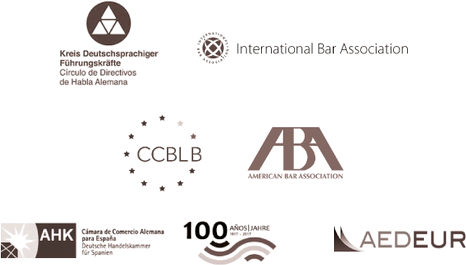
Better (?) late than never
31/05/17
Last Friday, May 26th, less than half a year late, the Spanish Government adopted Royal Law-Decree (Real Decreto-Ley, RDL) 9/2017, which implements into Spanish law the European Union damages Directive and was published in the Official Journal (BOE) next day.
Pursuant to Article 86 of the Spanish Constitution, a Royal Law-Decree is a means for the government to legislate when there’s an extraordinary and urgent need for it, provided the legislative branch ratifies the Decree.
Since yesterday, any plaintiff may use the changes to the Spanish Competition Act (Ley de Defensa de la Competencia, LDC) and to the Procedural Code for Civil Law Matters (Ley de enjuiciamiento civil, Lec) to request damages from a provider who has infringed competition law.
It goes without saying that RDL 9/2017 implements the cornerstones of Directive 2014/104/EU, such as for instance joint and several liability of wrongdoers; the value as evidence of competition authority decisions that cannot be further appealed (those taken in other EU Member States will only create a presumption); the minimum prescription period for court action (5 years); or indeed shielding off evidence in leniency applications. However, RDL 9/2017 raised at least two issues of special interest.
One, rules on obtaining evidence held by others (discovery), which were rather useless in Spain to date. The General Codification Commission had suggested to bring such rules in line with Directive 2014/104/EU and then apply the new rules to any civil matter in court. Indeed, the new Article 283bis(a) of the Lec now provides far-reaching examples of the type of information that either party in court may seek from the other or from third-parties. Yet the Government was much more conservative and limited the new special rules solely to competition damages proceedings.
Two, the axiom prohibiting damages beyond 100% as a consequence of cumulating consensual settlements (Article 19 of Directive 2014/104/EU). Indeed, copying Article12(2) of the Directive, the new Article 78(1)(2) of the Competition Act now states that ‘compensation for actual loss at any level of the supply chain shall not exceed the overcharge harm suffered at that level.’ The Directive, needless to say, does not ask Member States to restate that same principle but to ‘lay down procedural rules appropriate to ensure’ that it is attained.
However, Article 77(1) of the Competition Act now merely copies Article 19(1) of the Directive: ‘[t]he right to compensation for damages suffered by a party who has signed a consensual settlement will diminish by the proportional part of responsibility that the infringing party who signed such settlement has in the competition law infringement.’ In practice, this modest quote should hardly avoid overcharges where the victim settles for a higher share than the other party’s “proportional part of responsibility”. Indeed, the Government has forgotten to state, let alone to ensure, that this ‘right to compensation’ shall not exceed the actual, economic damages incurred by the victim.
We shall see what impact RDL 9/2017 will have in practice. To date, Spain lagged behind Europe when it came to court actions of this kind. This was no doubt partly due to our business culture in Spain (‘why, we will hardly take our own providers to court!’), indeed, but also to the rigidities of procedure. The latter is now considerably softer.
Rating Legis SLP
T/F: +34 932 724 264
Provença, 253
08008 Barcelona
<!–
Members of:



